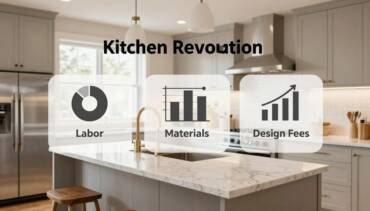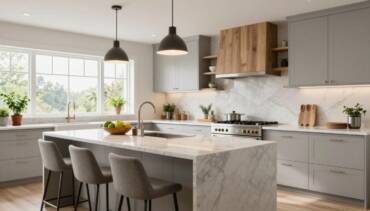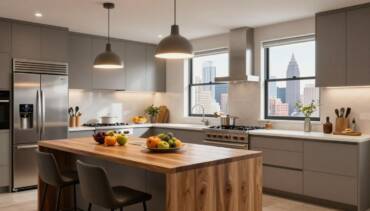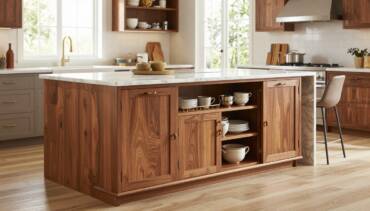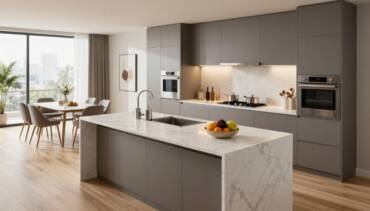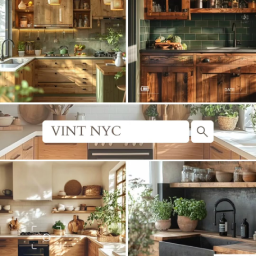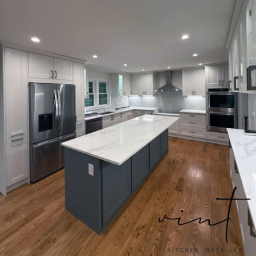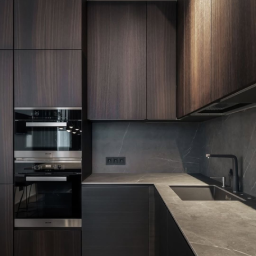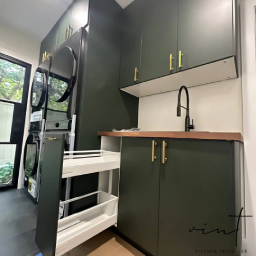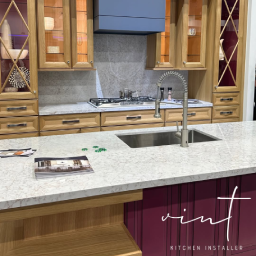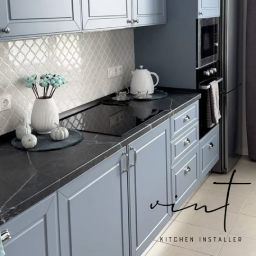Did you know 65% of New Yorkers feel their cooking area doesn’t match their lifestyle needs? This surprising gap between dreams and reality drives countless homeowners to rethink their spaces. Whether you’re craving sleek countertops or smarter storage solutions, transforming your culinary zone requires strategic planning.
Updating your space in America’s most vibrant city comes with unique considerations. From navigating building codes to maximizing every square inch, local expertise becomes crucial. The process blends creativity with practicality – balancing your vision with what’s achievable in dense urban environments.
Costs vary widely based on your goals. Basic refreshes start around $26,000, while comprehensive transformations can exceed $85,000. These figures reflect quality materials and professional labor, ensuring your investment enhances both daily life and property value.
Your renovation journey should focus on creating functional beauty. Think beyond surface changes – consider workflow efficiency, lighting solutions, and durable surfaces that withstand busy lifestyles. Smart planning helps avoid common pitfalls while delivering a space that truly serves your needs.
Working with skilled professionals makes all the difference. They’ll guide you through material selections, permit processes, and design choices that respect your home’s architectural character. The result? A personalized haven where memories simmer and modern convenience meets timeless style.
Understanding Your Kitchen Remodeling Journey
Transforming your cooking space starts with strategic thinking. In New York City’s compact homes, every decision impacts functionality and flow. Begin by assessing your lifestyle needs – from morning coffee routines to holiday meal prep.
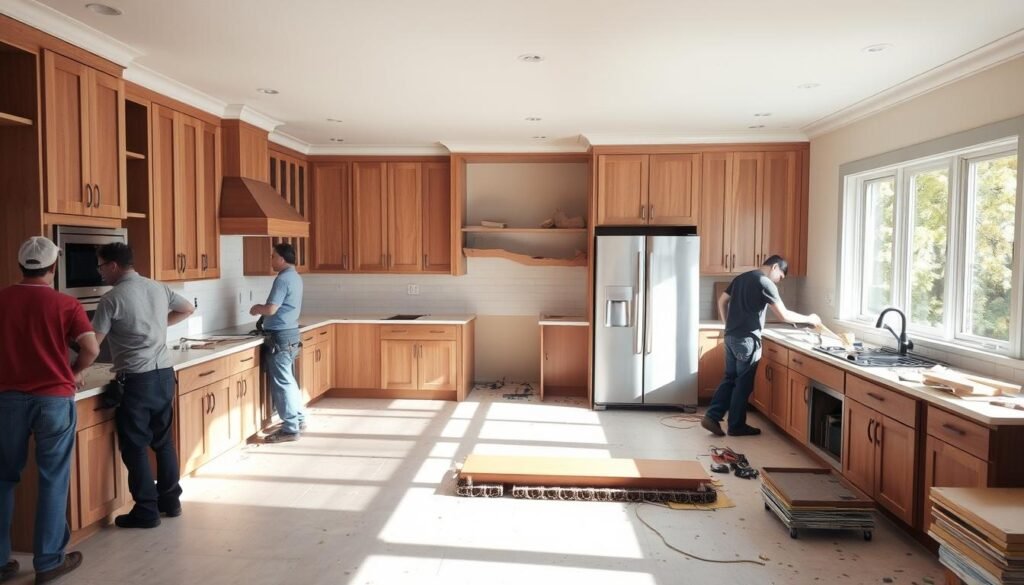
Defining Your Vision and Goals
Clarify what truly matters in your updated environment. Are you craving professional-grade appliances or doubled storage capacity? Urban dwellers often seek multifunctional zones that adapt to entertaining and quick meals.
Mapping Out the Renovation Process
Break your project into manageable phases. The initial planning week involves budget discussions and inspiration boards. Design development (2-6 weeks) refines layouts and material choices. New York City renovations require extra attention to permit logistics and contractor coordination.
Anticipate design revisions and material lead times. A detailed project timeline helps navigate unexpected challenges while keeping your vision on track. Thorough preparation today prevents costly changes tomorrow.
Key Trends in Kitchen Remodeling
Urban living demands spaces that evolve with your needs while reflecting contemporary sensibilities. Current transformations blend artistic vision with practical innovation, creating environments where form meets function effortlessly.
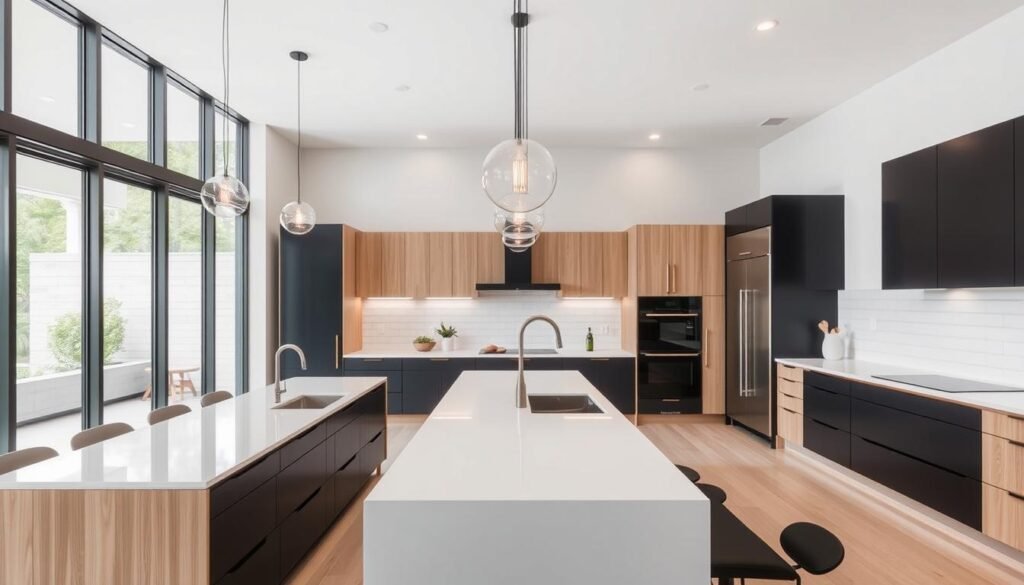
Modern Aesthetic and Design Inspirations
Today’s most sought-after design concepts draw from metropolitan energy. Clean geometric shapes pair with textured concrete or matte metals for industrial edge. Neutral backdrops in warm grays or creamy whites allow statement pieces like hammered copper range hoods to shine.
Open shelving with integrated LED strips adds both style and task lighting. Quartz countertops in organic patterns mimic natural stone while resisting stains – perfect for busy households. These choices create visual harmony without sacrificing durability.
Integrating Smart Technology
Forward-thinking appliances now serve as interactive partners in meal preparation. Wi-Fi-enabled refrigerators track expiration dates and suggest recipes based on inventory. Voice-controlled ovens preheat during your commute, syncing with traffic updates.
Three game-changing innovations:
- Motion-activated faucets with temperature presets
- Under-cabinet charging stations for devices
- App-controlled ventilation systems that adjust to cooking intensity
These technology integrations streamline daily routines, letting you focus on what matters – creating memories around meals.
Budgeting and Cost Considerations
Balancing quality and affordability requires careful planning. In dense urban environments, every dollar needs strategic allocation to achieve lasting results. Labor accounts for 25-35% of total expenses, especially when updating plumbing or electrical systems.
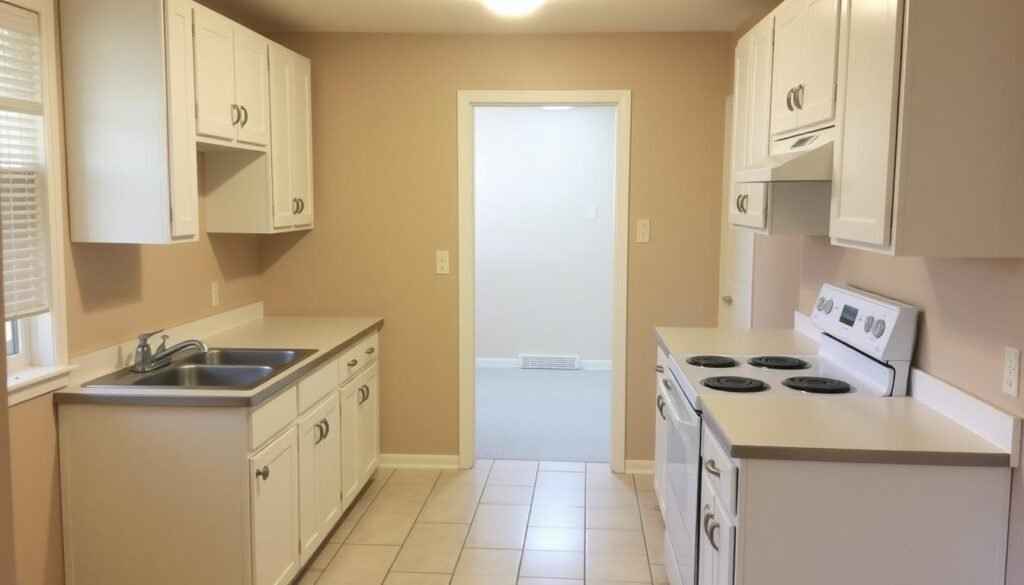
Understanding Material and Labor Costs
Skilled tradespeople command premium rates in metropolitan areas, reflecting local demand and expertise. Material choices create dramatic price variations:
| Material Type | Cost Range | Best Use Case |
|---|---|---|
| Laminate Countertops | $39/sf | Budget-focused updates |
| Quartz Surfaces | $120-$250/sf | High-traffic areas |
| Natural Stone | $557+/sf | Luxury installations |
| Ikea Cabinets | $1,500+ | Temporary solutions |
| Custom Cabinetry | $10,000-$20,000 | Long-term investments |
Balancing Budget-Friendly and High-End Options
Prioritize visible elements like countertops while opting for standard hardware. Allocate 10-20% of your budget for unexpected issues in older buildings. Three cost-saving strategies:
- Mix materials (e.g., stone countertops with stock cabinets)
- Reuse existing plumbing layouts
- Schedule work during contractors’ off-peak seasons
Multiple quotes help identify fair pricing without compromising quality. Remember: smart choices today prevent financial surprises tomorrow.
Planning Your Kitchen Remodeling NYC Project
Crafting your ideal cooking space begins with strategic choices about scope and services. Understanding different approaches helps align your vision with practical execution. Let’s explore how to structure your project for optimal results.

Full Refresh vs. Complete Overhaul
Two primary approaches exist for updating your culinary zone. A full renovation replaces surfaces and fixtures while keeping plumbing and electrical systems intact. Think updated cabinets and countertops without moving walls.
A gut renovation strips the space to its structural elements. This allows reconfiguring layouts and upgrading systems. It’s ideal when addressing functional flaws or expanding square footage.
| Scope | Key Changes | Duration | Cost Range |
|---|---|---|---|
| Full | Surface replacements | 4-8 weeks | $25k-$50k |
| Gut | Layout reconfiguration | 10-16 weeks | $60k-$100k+ |
Service Models Explained
Your team selection impacts the entire process. Design-focused professionals handle space planning and material selections. Build specialists manage construction logistics and code compliance.
Design-build firms combine both roles, offering single-point responsibility. This integrated approach often reduces miscommunication between planning and execution stages.
| Service Type | Focus | Pros | Best For |
|---|---|---|---|
| Design Only | Creative vision | Custom solutions | Unique layouts |
| Build Only | Construction | Cost efficiency | Pre-made plans |
| Design-Build | End-to-end | Streamlined process | Complex projects |
Exploring Custom Cabinetry and Premium Materials
Your storage solutions define how effortlessly your space functions. Tailored cabinetry transforms cluttered areas into organized zones while elevating aesthetic appeal. Premium materials ensure lasting performance, merging daily practicality with enduring elegance.
Benefits of Custom Cabinetry Options
Personalized storage addresses unique needs through adjustable shelving and specialized compartments. Built-in spice racks and vertical tray dividers keep essentials accessible yet hidden. Unlike stock units, custom designs adapt to awkward corners or high ceilings – maximizing every inch.
Quality craftsmanship shines through details like dovetail joints and soft-close hinges. These features withstand heavy use while maintaining silent operation. Though costing $606 per linear foot for intricate designs, the investment pays through decades of reliable service.
Selecting Durable and Stylish Finishes
Countertop materials balance beauty and resilience. Quartz offers stain resistance at $120/sf, while marble provides luxury veining at $250-$400/sf. Consider maintenance needs – polished surfaces show fingerprints, while honed finishes hide smudges.
| Material | Cost/SF | Durability | Maintenance |
|---|---|---|---|
| Quartz | $120+ | Non-porous | Low |
| Granite | $100-$200 | Heat-resistant | Sealing required |
| Marble | $250+ | Scratch-prone | High |
For cabinetry, walnut and cherry woods offer rich textures that age gracefully. Pair with matte brass handles or integrated pulls for cohesive styling. These finishes create visual harmony without compromising functionality.
Maximizing Space and Functionality in Your Kitchen
Urban homes demand smart solutions that turn tight quarters into efficient hubs. Clever planning transforms even the smallest areas into organized, multi-purpose environments. Let’s explore how to achieve this balance in your culinary space.
Optimizing Layouts for Compact Areas
Galley configurations work wonders in narrow rooms under 90 square feet. Wall-mounted shelves and sliding drawers maximize vertical storage without crowding walkways. For medium-sized spaces, L-shaped counters create triangular workflows between fridge, sink, and stove.
Consider these space-saving strategies:
- Fold-down tables that disappear after meals
- Pull-out pantries hiding behind cabinet fronts
- Under-counter appliances freeing up surface areas
Built-in organizers like vertical tray dividers keep tools accessible yet concealed. In larger rooms, islands double as prep stations and casual dining spots. Remember: smart design prioritizes movement flow over sheer square footage.
Professional designers often suggest glossy backsplashes to reflect light in dim areas. Pair with recessed ceiling lights for layered illumination. These choices enhance both functionality and visual spaciousness – crucial in dense urban settings.


